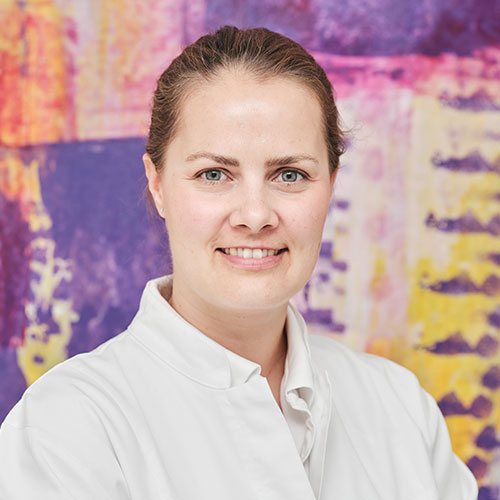Familial breast and ovarian cancer
Breast cancer is the most common cancer in women. In Switzerland, about 6000 women are diagnosed with breast cancer every year. Mostly the disease occurs by chance, i.e. sporadically. The causes are usually multifactorial.
Only a small proportion of women who develop breast cancer (approx. 5-10%) are diagnosed with genetic burden. We then speak of familial breast and/or ovarian cancer, since the cause of the disease is an inherited genetic change (gene mutation). The most frequent Gene alterations are found in the genes BRCA1 and BRCA2.
For women with a gene mutation, the risk of developing breast or ovarian cancer during their lifetime is increased compared to women without a family history of cancer. You can inherit 50% of this risk to your children.
The following criteria increase the risk of familial breast and/or ovarian cancer:
Families with:
- First-degree relatives (mother, father, brother, sister, daughter, son) with a proven genetic change in BRCA1 or BRCA2 or another high-risk gene.
- Second degree relatives with a proven gene change in one of the above mentioned genes.
- At least one woman suffering from breast cancer with a disease age before 36 years of age.
- At least three women with breast cancer from the same line of the family, regardless of their age at first diagnosis.
- At least two women from the same line of the family with breast cancer, both of whom were diagnosed before the age of 51.
- At least one woman suffering from bilateral breast cancer with an age of disease before the age of 51.
- At least two women with ovarian cancer from the same line of the family or one woman with breast and ovarian cancer.
- At least one man with breast cancer and another woman with breast or ovarian cancer.
Since the criteria described are constantly being adapted, they cannot be taken as a final assessment.
We recommend that women who meet the above criteria take advantage of genetic counseling.
Women with a family risk of breast and/or ovarian cancer can be offered an intensified early detection and aftercare. In certain cases, further risk-reducing measures, such as prophylactic surgery, may also be useful.
Please do not hesitate to contact us if you have any questions.
You can also find further information on this topic at:
www.krebsliga.ch/ueber-krebs/genetische-vorbelastung/
www.sakk.ch
www.brca-netzwerk.de
